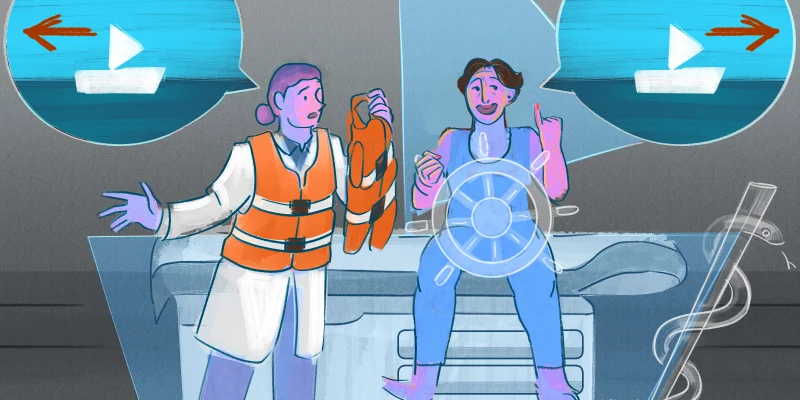
A few weeks ago, I attended the Harvard Medical School CME Course: Career Advancement & Leadership Skills for Women in Healthcare (#SheLeadsHealthcare), a phenomenal Women's Leadership conference in Boston, MA, led by Dr. Julie Silver. I also had the opportunity to see "Hamilton: An American Musical" at the Boston Operahouse. As a Caribbean immigrant myself, seeing that play before #SheLeadsHealthcare gave me a unique perspective to start the conference because I saw every lecture, every interaction through the lens of "Hamilton." I met new friends and expanded my network; it would be impossible to summarize the entire conference, but here are my big takeaways, Hamilton-style.
Women and minorities must insist on being in "the room where it happens"
Women and minorities in medicine are less likely to be promoted to full professor, receive medical society awards, invited to speak at grand rounds, or be in the room where decisions happen, and Dr. Sareh Parangi shared some of this data (and invited us to dance to the "Hamilton" track: "The Room Where It Happens"). What's the big deal with being in the room where it happens, as Aaron Burr sings about in the second act of "Hamilton"? Studies have shown that when a company's Board of Directors are diverse and inclusive, the organization reaps benefits, including increased innovation, performance, and reputation. So what will it take for women and minorities to get to the room where it happens? We need to intentionally join in the conversation – reach out to those already in the room and connect with shared interests. However, being invited into the room is not enough. We must insist on having a seat at the table or bring our own to sit down. That means we must #SpeakUp, and #BeVisible. The #BeEthical campaign is about giving women and minorities a chance to not only be in the room where it happens, but also to have a say in what happens, both inside and outside of that room.
Do not throw away your shot
Alexander Hamilton knew that as a poor Caribbean immigrant orphan, he had no chance of success without being bold; he had to "holler just to be heard," so in the first act of "Hamilton," he sang that he would not throw away his shot. Yet the advice he was given by Aaron Burr, whom he sought out for mentorship, was "Talk less, smile more; don't let them know what you're against, or what you're for." Minorities in medicine have been told to be less opinionated, dress a certain way, and wear their hair a certain way. What is that like, when you are passionate about something and told to keep your light hidden, voice silenced? How can you truly progress in life without shining your light? Dr. Saurabha Bhatnagar shared data that women in medicine are not comfortable with self-promotion, but we must not throw away our shot at greatness by hoping someone will recognize our talent. We have to own it, and if that makes us uncomfortable, we must surround ourselves with a tribe that will support, collaborate, and be there to amplify our message so it is heard. The composition of the tribe is important too – Laurie Baedke encouraged us to reach out of our comfort zones and connect with individuals who have similar goals but very diverse experiences.
Backlash avoidance due to modesty norms negatively impacts self-promotion. We need to share our accomplishments & amplify those of others. Lift each other up! #WomeninMedicine #HeForShe #SheLeadsHealthcare #BeEthical pic.twitter.com/6SIqVY0bhZ
— Kelly Cawcutt, MD (@KellyCawcuttMD) November 17, 2018
Networking helps to get the movers and shakers "on our side"
Early in the first act of "Hamilton," Aaron Burr wonders out loud how does this immigrant, "obnoxious, loud mouth, bother be seated at the right hand of the father [George Washington]," and later on in the second act, he joins colleagues Thomas Jefferson and James Madison musing, "It must be nice to have Washington on your side." Have you ever thought that it must be nice for a colleague to know someone with influence, serve on national committees, or make friends with executives? How can you do this? The big theme of #SheLeadsHealthcare was #Networking – how to do it as a quiet leader, using social media, investing in leadership courses, showing up to meetings early. By making an effort to reach out and meet others, we create opportunities, but it does not end at the introduction. Dr. Silver encouraged us to "Lead when it's your job and when no one else is leading." Hamilton worked hard to show George Washington that he could be trusted to lead and delivered consistently. Too often, we may feel like we worked so hard to reach a particular level of authority that pulling others up compromises our position. The world is big enough for all of us to shine, so we must not trample over our colleagues to get there. #BeEthical says we need to Rise Up: by pushing and pulling another woman or minority forward, we do not diminish our own position – on the contrary, this ensures ongoing diversity of thought at all levels of society. We need to support each other because in doing so, we are making our spaces more diverse. We need to be kind to each other, giving each other and ourselves grace.
I love this @JulieSilverMD quote. “Lead when it’s your job and...when no one else is leading”. #SheLeadsHealthcare #BeEthical pic.twitter.com/0JDgCI4np7
— Jasmine R Marcelin, MD (@DrJRMarcelin) November 17, 2018
Who lives, who dies, who tells your story?
Both "Hamilton" and #SheLeadsHealthcare ended with a grand finale focused on leadership and legacy, and as I reflect on the two productions, I see #BeEthical represented in the intentional efforts of playwright Lin-Manuel Miranda to highlight women and minorities. One of the most beautiful moments in the "Hamilton" finale was Eliza Hamilton singing about putting herself "back in the narrative," using her voice to tell Alexander's story and create her own. While we are alive, we must make the most of the time we have and not only do our "jobs" but constantly seek our Ikigai. When your time is up will you be satisfied when they tell your story? Will your legacy live on through your network? My legacy, demonstrated through my writing, speaking and clinical practice, will be that #MinoritiesInMedicine and #WomenInMedicine will find their voice to speak up, challenge implicit bias and change the narrative of #WhatADoctorLooksLike. What will yours be?
The Harvard Medical School CME Course: Career Advancement & Leadership Skills for Women in Healthcare is an annual Women's Leadership Course led by Drs. Julie Silver and Saurabha Bhatnagar in Boston, MA. This year's conference project is the #BeEthical campaign, a call to action to end gender workplace disparities in healthcare. You can find this year's conference highlights on Twitter using the hashtags #SheLeadsHealthcare and #BeEthical. I highly recommend attending this conference, regardless of your role in healthcare. Watch for registration for next year's conference, scheduled for November 14-16 – register early because it sells out quickly!







